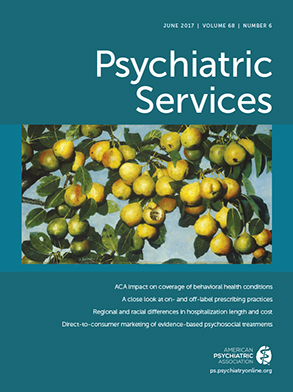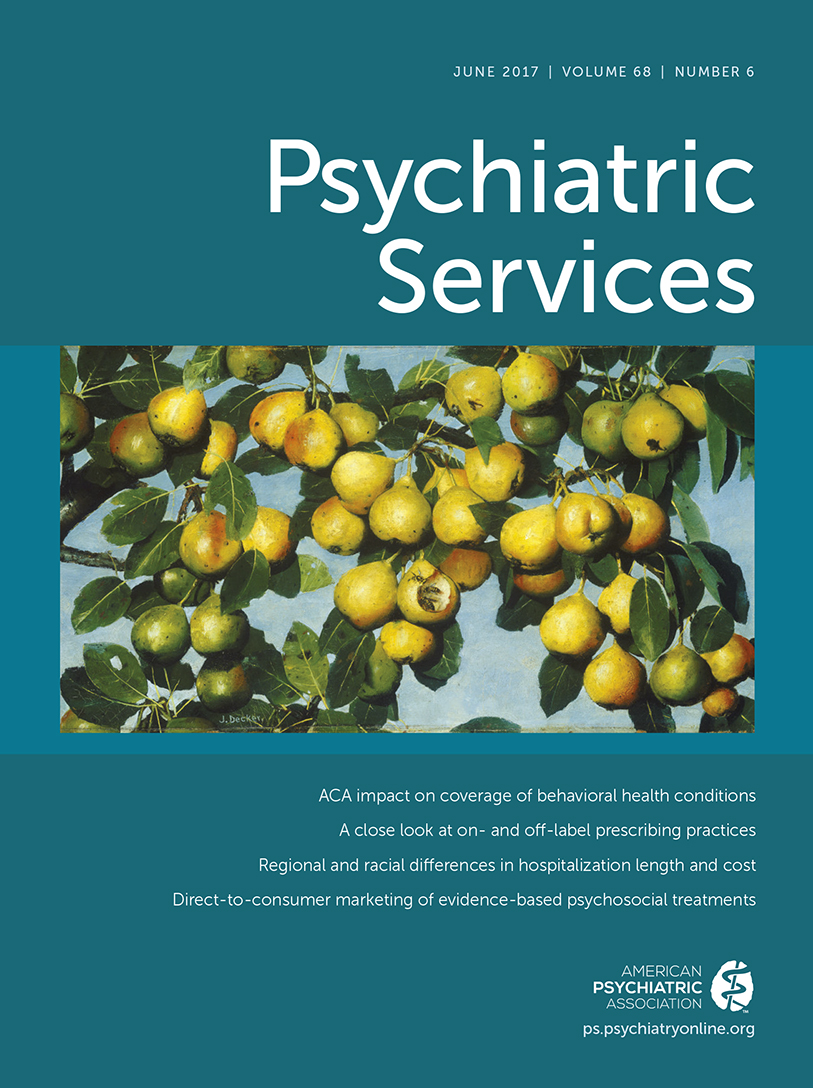TO THE EDITOR: Older adults are the fastest growing age demographic behind bars, and they face elevated risks of mental health problems, substance misuse, and poor social reintegration after release from incarceration (
1,
2). Meeting the psychosocial needs of this burgeoning population is a serious concern. Research is needed to inform how parole and probation programs can coordinate services to mitigate adverse health and criminal justice outcomes.
To characterize this group, we analyzed data from older U.S. adults (age ≥50) who completed the annual National Survey for Drug Use and Health within the 2005–2014 period. We used chi-square tests to compare socioeconomic, mental health, and substance use characteristics for those who reported being on parole, probation, or both over the past year (N=499) and those who reported being on neither (N=60,561). The prevalence values and comparisons were adjusted for sampling design. Individuals residing in institutions (including nursing homes, hospitals, prisons, and jails) or experiencing homelessness outside of shelters were excluded from our analysis. Therefore, survey respondents were likely the most socially engaged and healthiest subset of justice-involved individuals. [An online supplement provides tabulated statistics.]
Older adults with recent correctional supervision were more likely than the comparison group to have not graduated from high school (29%, N=146, versus 16%, N=9,944), report income below the federal poverty level (26%, N=146, versus 8%, N=5,870), have no health insurance (22%, N=99, versus 7%, N=4,282), and report poor or fair health (35%, N=185, versus 20%, N=12,535). They were also more likely to receive government assistance (35%, N=200, versus 14%, N=9,582).
Past-year major depression and serious psychological distress were more common for older adults with recent correctional supervision (depression, 16%, N=69, versus 5%, N=3,255; distress, 23%, N=117, versus 6%, N=4,101). This group was more likely than those without correctional supervision to utilize outpatient and prescription mental health services (outpatient, 20%, N=96, versus 6%, N=3,697; prescription, 28%, N=145, versus 12%, N=7,639). Alcohol and drug use disorders were more prevalent (alcohol use, 21%, N=110, versus 3%, N=2,035; drug use, 7%, N=37, versus .6%, N=292), as was specialized substance use treatment (14%, N=77, versus .4%, N=297).
We found high socioeconomic, mental health, and substance use needs among older adults with recent correctional supervision but also high services utilization across all three areas. These findings suggest that multiple needs are common among these individuals and that barriers to services access are not insurmountable in parole and probation settings. This seems to be consistent with recent perspectives arguing that correctional supervision programs must address complex psychosocial needs to reduce risk of criminal recidivism (
3,
4). Existing programs, however, tend to overemphasize services within one particular domain of need (
4,
5).
Our findings support the rationale for developing multidisciplinary and case management–based parole and probation programs to help identify, prioritize, and address various needs. Multidisciplinary parole and probation services could include collaborations with community organizations that work with older justice-involved individuals. Policy makers might consider strategies to encourage such collaborations and develop systems for secure and convenient information and resource exchange. Community health care practitioners will encounter older adults with correctional involvement and must be aware that they are likely to have complex psychosocial needs. Finally, additional research is needed to understand the specific needs and service utilization patterns of this often overlooked population.

